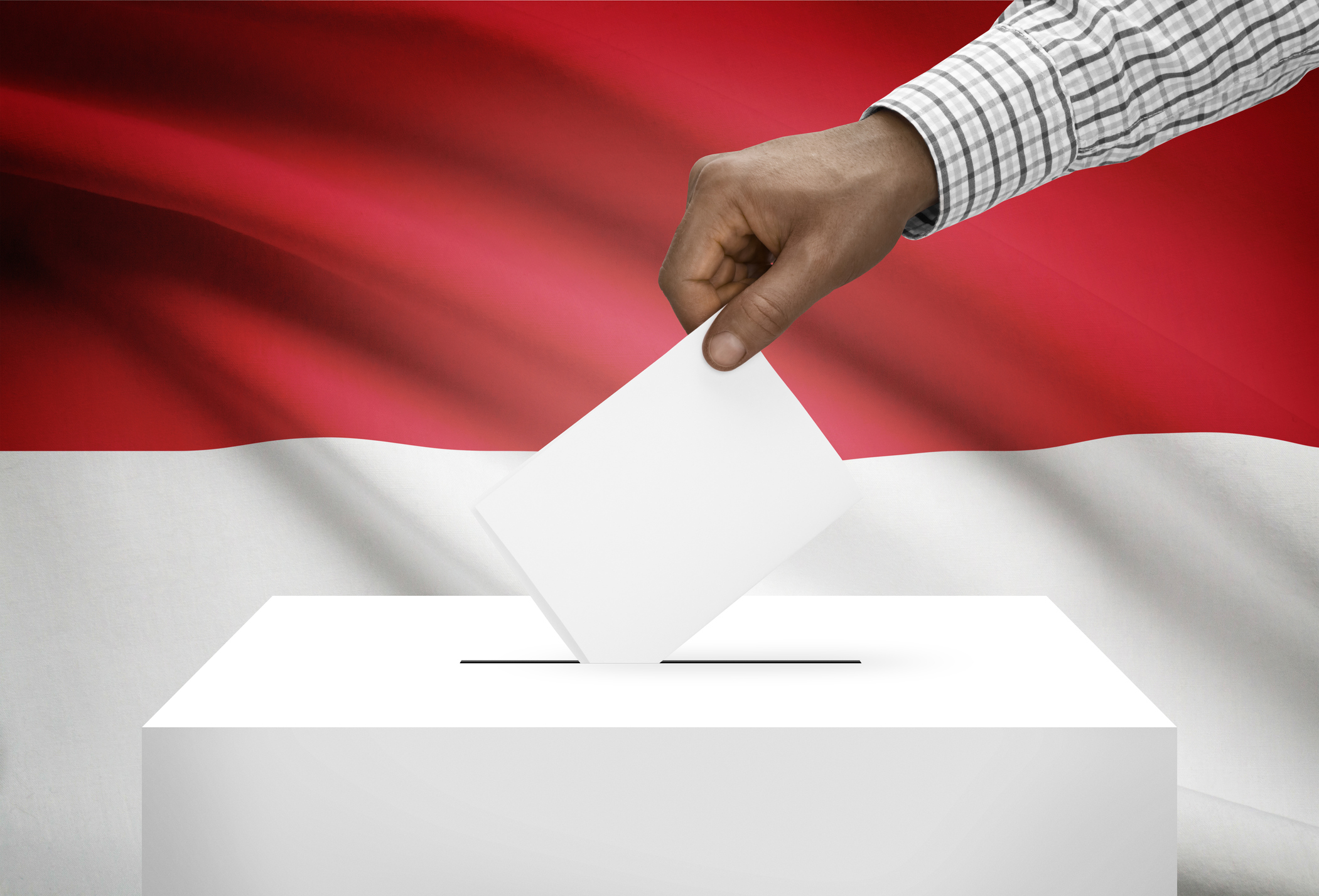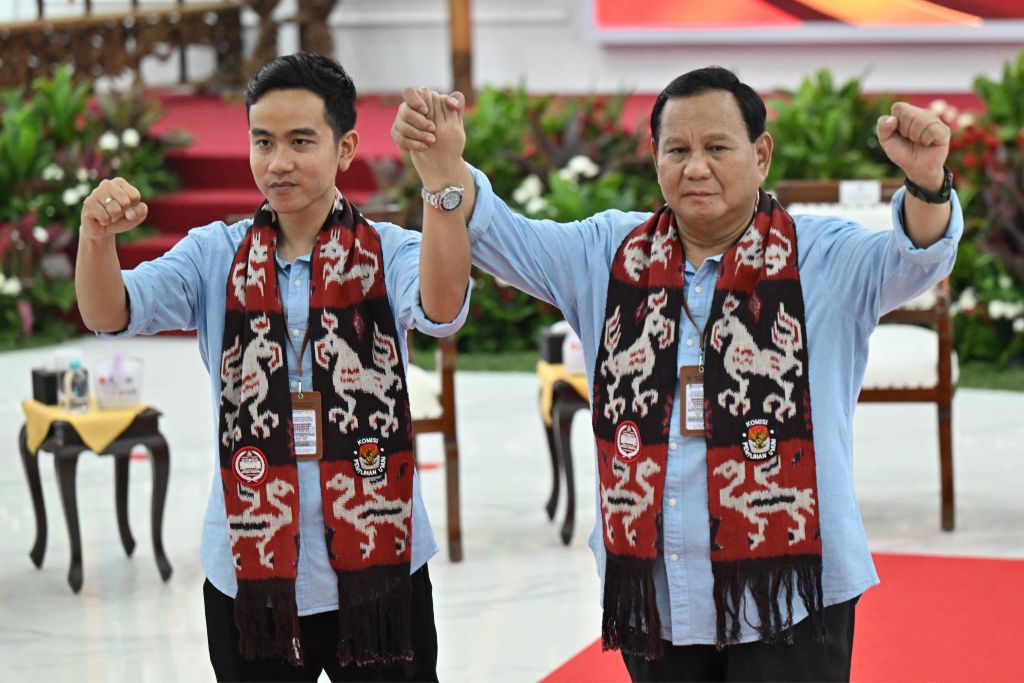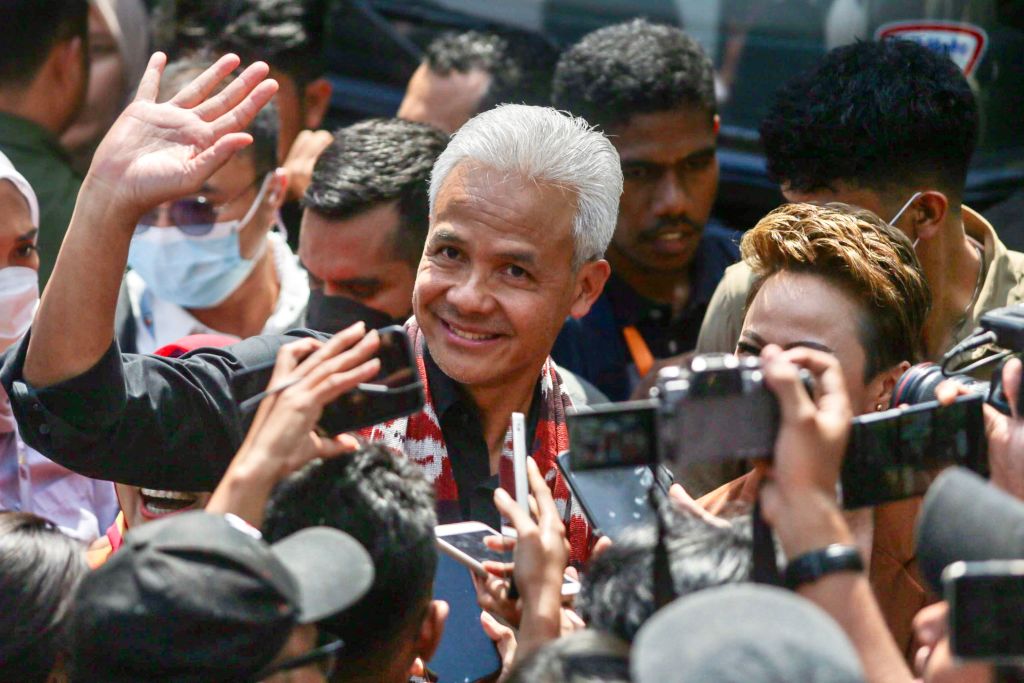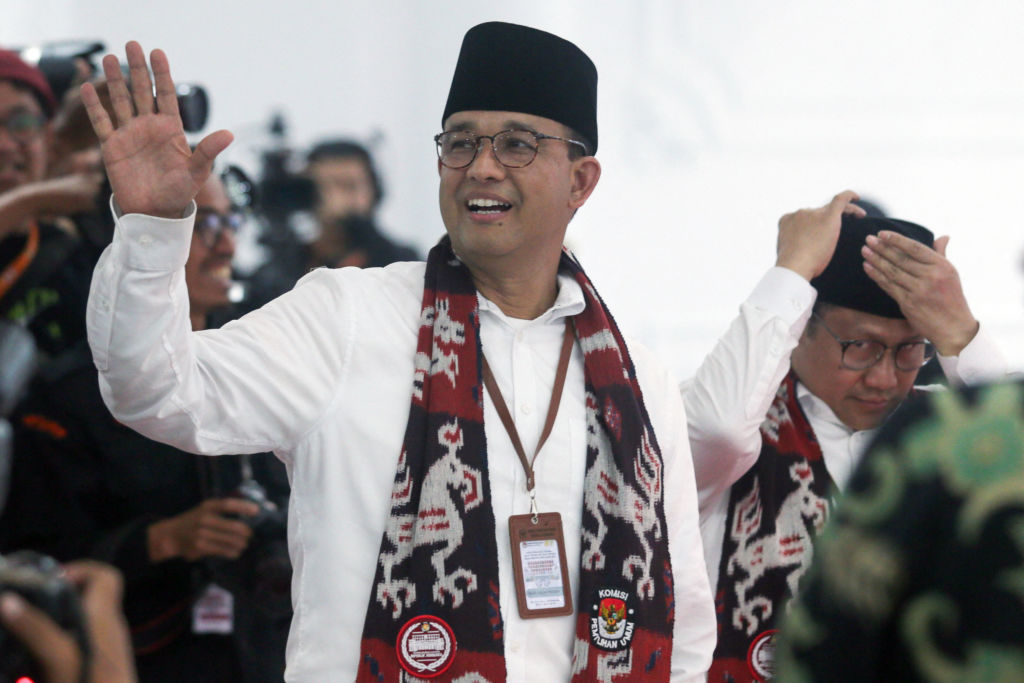
The contest to become Indonesia’s next leader is looking like a three-horse race after candidates filed their papers for Feb. 14 elections, with one of them bringing in President Joko Widodo’s son as a running mate.
Prabowo Subianto, a military man turned politician, faces off against Ganjar Pranowo, a former governor of one of the country’s most populous provinces, and Anies Baswedan, who was previously governor of Jakarta. According to the latest survey published earlier this week, Prabowo leads with about 36% approval, followed closely by Ganjar at 31% and Anies at 20%.
All three, at different points of their careers, were either allies or foes of the president, known widely as Jokowi. Their stance on whether to continue with the construction of a new capital in Borneo—the cornerstone of his legacy—will feature in the election campaign. Prabowo went a step further to pick Jokowi’s eldest son Gibran Rakabuming Raka to run with him as vice president.
Read More: What It Means for Indonesia’s Democracy That the President’s Son Now Leads Another Party
Whoever becomes president will need to bolster growth in an economy reliant on domestic consumption, manage the nation’s resources and balance competing China and U.S. interests.
The Elections Commission will finalize the list of contenders on Nov. 13 after registrations close on Wednesday.
Here’s a look at the candidates:
Prabowo Subianto, 72

Prabowo is the sole figure in the presidential race with links to the Suharto dictatorship from 1967 to 1998. A lieutenant-general during Suharto’s regime and his son-in-law for a time, Prabowo was dishonorably discharged for alleged human rights violations in East Timor and in relation to the deadly riots leading to the fall of Suharto’s government.
The allegations weren’t proved in court but the U.S. imposed a travel ban on Prabowo that was lifted near the end of the Trump administration’s term. Prabowo visited Washington as the defense minister in October 2020 and has been adept at courting China, Russia, and the U.S. with promises to buy arms.
Indonesia under Jokowi moved closer to Beijing in terms of economic ties, with state firms from the two nations working on infrastructure projects. Prabowo has publicly said Indonesia won’t choose sides if the U.S. and China go to war.
Read More: As Indonesia Courts Chinese Infrastructure Investments, Locals Are Pushing Back
Both men contested the last two presidential elections, which became bitter fights with Prabowo accusing Jokowi of being anti-Muslim and claiming the 2019 polls were “stolen.” Jokowi appointed Prabowo into his cabinet after his second victory and observers say he appears to be throwing his support behind the former general, who openly backs building the new capital.
A court lowered the minimum age for candidates vying for president and vice-president, allowing 36-year-old Gibran to join forces with Prabowo.
Ganjar Pranowo, 54

Ganjar served two terms as Central Java governor, gaining popular support for improving infrastructure in the congested region by approving new data centers and overhauling roads.
He made global headlines for refusing to host the Israel team in his province during the Under-20 FIFA World Cup. Indonesia was eventually dropped as the host and Ganjar’s ratings took a hit in the soccer-crazed country.
Read More: The Messy Politics and High Costs of Indonesia’s Anti-Israel FIFA Fiasco
Ganjar has limited foreign or economic policy experience. Then again, neither did Jokowi when he first ran for president in 2014. Ganjar has adopted Jokowi’s grassroots populism with impromptu walkabouts, speaking about his humble origins, and is now building the largest following among the three candidates on TikTok.
He needs to balance the interests of the kingmakers in the ruling Indonesian Democratic Party of Struggle. On one side is Megawati Soekarnoputri, the party’s chairwoman and a former president, who with Ganjar has again selected a popular politician over her daughter for the presidential nominee to ensure her party’s relevance.
Then there’s Jokowi, who initially pushed for Ganjar, but is cautious of giving him his full support, observers say. He’s concerned Megawati will influence Ganjar in government and, in particular, unwind his legacy.
It looks like Ganjar will toe Megawati and the party’s line. She selected senior cabinet minister Mahfud MD, who was her choice in the last election for vice president, to be Ganjar’s running mate.
Anies Baswedan, 54

Before joining politics, Anies was an academic who became Indonesia’s youngest head of an Islamic university. He started a movement in 2009 to address a shortage of teachers.
In Jokowi’s first term, Anies became education minister but was dropped in a cabinet reshuffle two years later. He then set his sights on, and won, the Jakarta gubernatorial race in 2017, using a divisive campaign that tapped a Muslim backlash against a Chinese Christian incumbent who was also a Jokowi ally.
Read More: A Women-Led Movement in Indonesia Says Interpreting Islam Isn't Just for Men
Anies served as Jakarta governor until his term ended last year, building on infrastructure projects started by his predecessors such as flood-control measures and transportation. Out of the three, Anies is most opposed to Jokowi’s new capital, saying policies shouldn’t be based on personal aspirations.
Critics say Anies could use Islamic populism again. He’s chosen Muhaimin Iskandar, the leader of Indonesia’s largest Islamic party, as his vice president candidate.
More Must-Reads from TIME
- Inside Elon Musk’s War on Washington
- Meet the 2025 Women of the Year
- The Harsh Truth About Disability Inclusion
- Why Do More Young Adults Have Cancer?
- Colman Domingo Leads With Radical Love
- How to Get Better at Doing Things Alone
- Cecily Strong on Goober the Clown
- Column: The Rise of America’s Broligarchy
Contact us at letters@time.com